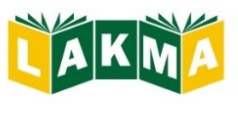On 23-27 August 2016, LAKMA in cooperation with the British Council organised a summer school “Teaching Young Teenagers” which took place at the Lithuanian University of Educational Sciences. It welcomed over a hundred English language teachers working at the lower secondary level in Lithuanian schools of general education. The participants had a great opportunity to enhance their professional competences which are necessary to meet the current needs and demands of their students. The course was given by well-known international trainers and was designed in two sessions.
Session One was started by Sylvie Dolakova, a freelance teacher trainer from the Czech Republic, who gave a series of workshops on the theme Bridging the Gap from Primary to Secondary English. The teachers discussed how to help their learners cope with the natural change in their cognitive, psychological and social needs in the period of transition from primary to secondary level of education. The teachers took part in a variety of activities which could be used with young learners to keep them engaged, focused and motivated.
To finish Session One, Damian Ross, a British Council specialist in education and English language development management, gave a seminar on British Council Teaching for Success – resources for teachers’ continuous professional development (CPD). The teachers had an intense discussion about the needs for CPD in order to be successful in the teaching profession. Damian Ross’s repeated seminar started Session Two.
In Session Two, the participants split into two groups to attend parallel workshops by Diana Lindsay and Johanna Stirling.
Diana Lindsay, a teacher, teacher trainer and CLIL materials writer currently based in Spain, shared her experience of using CLIL Projects for Young Teenagers. The teachers explored how to successfully engage their teenage learners through content and creativity in learning both the subject content and the English language.
Johanna Stirling, an ELT Consultant, materials writer for Cambridge and NILE teacher trainer, focused on the Humanistic Factors in Teaching Young Teens, emphasizing the importance of considering different learning styles and abilities. The trainer introduced a number of innovative and effective methods and techniques of teaching the English language to teenagers. The teachers had an opportunity to improve their knowledge of how to teach English to special needs students and to a culturally diverse group of learners.
The Closing Session invited all the participants to reflect on their experience at the summer school The teachers greatly appreciated the opportunity to brush up their knowledge and skills and expressed their gratitude to the trainers and the organizers. LAKMA president Eglė Petronienė and the British Council Projects Manager Eglė Mačiulytė congratulated all on completing the course and expressed their hope for future collaboration in organizing similar events.
We are happy to share some testimonials by the participants:
All methods and activities are very interesting, useful and easy to understand. Sylvie is a very sociable, emotional and well-educated person with a good sense of humour who really loves her job and is ready to share her experience. It was a pleasure to listen to her. Perfect! (Irina Rešetnikova, Visaginas)
I’d like to thank Sylvie Dolakova for an absolutely excellent and professional course and for providing such useful material presented in a highly intuitive way. I’ll use the information and knowledge I got from the course in my teaching. (Tatjana Moždžer, Palanga)
Diana Lindsay really demonstrated professional skills and gave us useful advice. Thank her. (Julija Jacinavičiūtė, Vilnius)
I am very grateful for Johanna’s fantastic teaching methods, for her as an excellent person and the atmosphere she created during the session. (Violeta Leonovič, Vilnius reg.)
We were given good types of activities how to integrate subject and linguistic material, how to join content and language in the lesson etc. My expectations were fully met because of the trainers – native English speakers, their high qualifications, sharing experience with other colleagues, opportunity to discuss important questions. (Jūratė Damanskienė, Telšiai)
Damian Ross made it very clear to us that if we do not try to implement what we have learnt, there is no point in attending any courses. The 12 professional practices (Continuous Professional Development Framework) need to be analysed in detail through our personal analysis. (Neringa Šakinienė, Lentvaris)
Thank you for organizing such useful workshops. (Božena Salatynska, Vilnius)
